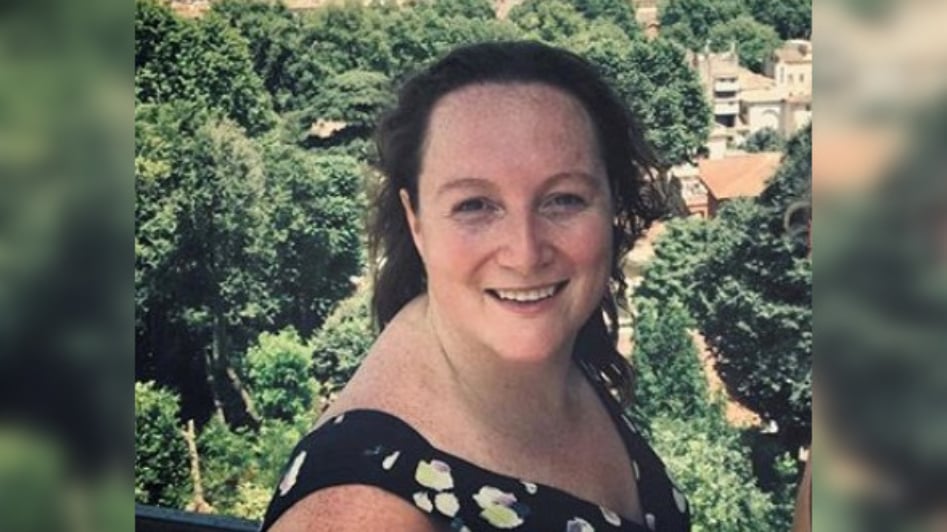
Image: Cara Hoofe
At 32 years old, I was diagnosed with bowel cancer. Like too many young people who find themselves in this situation, my cancer was at an advanced stage when it was diagnosed, almost a year after I first raised my concerns with my GP.
Over the three years that followed, I faced by far the most difficult physical and mental challenges of my life. I’ve undergone three major surgeries, countless minor procedures and over 20 cycles of chemotherapy.
I’ve been fortunate in my situation and currently have no evidence of disease, but while I was undergoing treatment, the biopsy of my tumour indicated I might have an inherited condition called Lynch syndrome.
I was referred for genetic counselling and one simple blood test later, this was confirmed, as it revealed I had a mutation in my MSH2 gene.
People with a fault in the genes associated with Lynch syndrome (also known as HNPCC) are more likely to develop certain cancers, including bowel and endometrial cancers.
So what does it mean for me? The most obvious thing is that, although I’ve already had bowel cancer, my lifetime risk of another primary bowel cancer remains high.
The silver lining is that with the knowledge of this risk, I can be monitored regularly as part of the screening programme that is available for individuals at high risk.
Most bowel cancers develop from pre-cancerous growths, and with access to screenings, which take the form of a colonoscopy, it’s something I feel I can control.
But bowel cancer isn’t the only risk – being female with Lynch syndrome, I’m at higher risk of cancers including womb and ovarian cancer too.
Find out more about the work we do to identify cancer susceptibility genes and understand how these can cause disease.
When I first found out about my Lynch syndrome, I was focusing on getting through a stage 4 cancer diagnosis – anything else felt almost irrelevant. Now that I am in remission, I am more easily able to consider another big decision I’m faced with – prophylactic surgery.
I currently have annual pelvic examinations and ultrasounds, as well as a hysteroscopy and endometrial biopsy every 18 months. But I was asked to contemplate preventative surgery to remove the uterus and ovaries, especially as screening for endometrial and ovarian cancer has not been proven to be effective.
Prophylactic surgery would significantly reduce my risk of developing these cancers and I made the decision early on to go ahead with this, since I promised myself I would do everything in my power to not have to go through treatment again.
But it wasn’t an easy choice. It’s great to know that you can act to reduce your risk, but it brings with it an emotional impact. The decision triggers a lot of feelings, from the fear of another surgery and the complications that could go with it, to the grief of the impending loss of my fertility.
I don’t fear Lynch syndrome. For me, knowing is about having the opportunity for early intervention against cancers – I am one of the lucky ones, to have that knowledge.
Currently there is no way to eliminate your risk for Lynch syndrome, but there is always the chance someone will never experience cancer if they have regular screenings that can pick up the disease at a pre-cancerous stage.
It’s important for me to share my story to try and ensure other young people don’t face the diagnosis I did. I want them to know that even if they do have Lynch syndrome – while it may feel scary and come with a lot of emotional decisions – they can still lead happy and healthy lives.